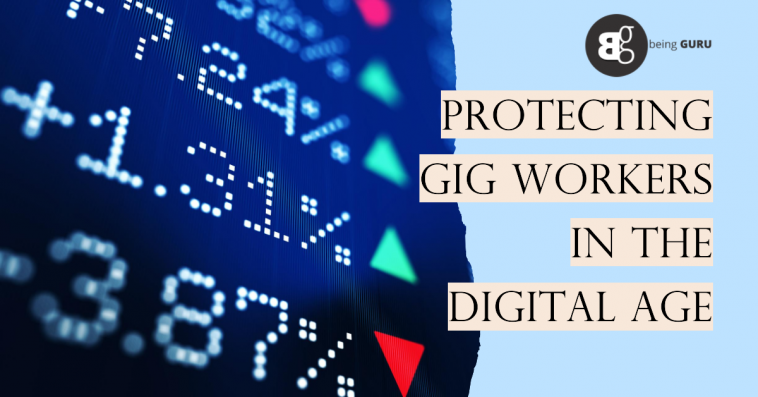Introduction
The idea of gig labor, sometimes known as “platform work” or “digital gig work,” has quickly become more prevalent in the modern industry. These people, who offer services via digital platforms, have grown to be an essential part of the global economy. To protect the rights and well-being of gig workers, however, social protection measures are becoming more and more necessary as this industry develops.
The Asia-Pacific Social Protection Week
Experts highlighted the significance of extending social protection to gig workers during the Asia-Pacific Social Protection Week, which was held from September 26 to 28 in Manila, Philippines, and was organized by the Asian Development Bank (ADB). They emphasized how important it is ethically to take this action in addition to being wise.
The Unique Nature of Gig Work
Gig workers differ from traditional informal laborers due to their reliance on digital platforms. They perform a wide range of tasks, from delivering food to driving passengers, often working remotely. This distinctiveness makes it crucial to address their social protection needs.
The Vulnerability of Gig Workers
The rise of gig work has exposed a vulnerability among workers who may not have access to traditional forms of social protection such as pensions, health insurance, or unemployment benefits. This vulnerability was notably evident during the COVID-19 pandemic, highlighting the urgent need for protective mechanisms.
Tailoring Protection Mechanisms
Designing a one-size-fits-all social protection mechanism for gig workers is challenging due to the diversity of this workforce. However, Yesim Elhan-Kayalar, adviser to ADB’s Economic Research and Development Impact Department, pointed out that many platforms are actively seeking protection mechanisms that mirror formal employment. This approach not only makes economic sense but is also financially sustainable.
Consumer Demand for Fair Treatment
It’s not just workers who demand social safety measures; consumers also play a crucial role. Many consumers are unwilling to use services if gig workers are treated unfairly, underscoring the significance of equitable treatment.
Leading by Example: Grab
Some companies are already leading by example. Grab, Southeast Asia’s leading superapp, has outlined six guiding principles to ensure the well-being of its workers, whom they refer to as partners. These principles include providing flexibility in work, protection in case of work-related injuries, competitive earnings, and opportunities for long-term savings. Grab also promotes workers’ representation and offers skill development programs through the Grab Academy.
Government Oversight
While companies like Grab are taking steps to ensure worker welfare, Brendan Chai, head of regional public affairs and policy at Grab Singapore, emphasized the importance of government oversight. He suggested that a comprehensive policy followed by legislation surrounding gig work would be a positive first step.
The Gig Economy in Pakistan
In Pakistan, the gig economy is gaining traction, especially among Gen X individuals who are turning to online platforms for freelance opportunities. The allure of earning in foreign currency has contributed to this trend. However, to fully harness the potential of the gig economy, Pakistan must invest in widespread high-speed internet access.
Protecting Pakistan’s Gig Workforce
As Pakistan’s gig economy continues to grow, it is crucial to have a plan in place to protect this dynamic workforce from exploitation. This could involve creating a supportive regulatory environment and ensuring that workers have access to social protection measures.
Conclusion
It is crucial that we give gig workers’ social protection top priority in a time when the gig economy is expanding quickly. The need to provide fair treatment and support for these people, who are the foundation of the digital economy, has been highlighted by the Asia-Pacific Social Protection Week. By taking proactive steps and fostering collaboration between governments, companies, and workers, we can ensure a more secure and sustainable future for gig workers worldwide.




